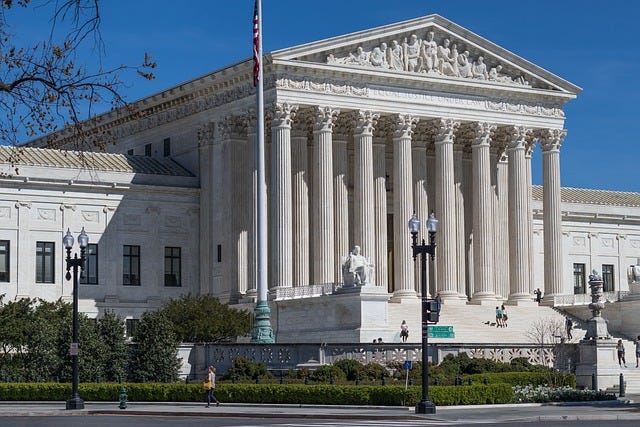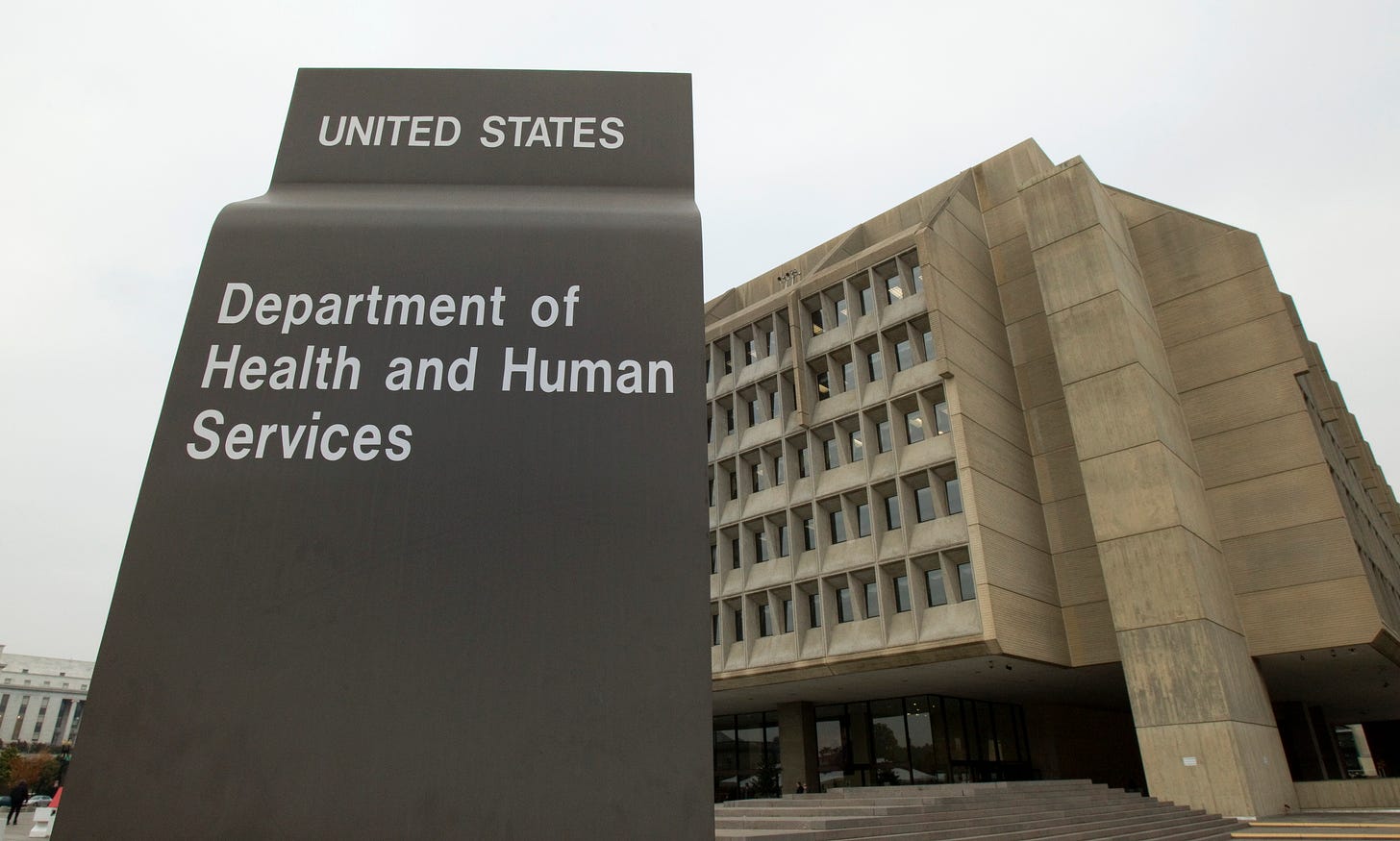Follow: Twitter | Instagram | Telegram | Truth Social | Podcast Membership|
Broadcasts: Rumble| HappyHour |This Wk wDrT | Brighteon | Bitchute | Tues Coffee
Learn about ECP: Health Center Cleveland, OH | Health Center Ventura, CA
Websites: DrTenpenny.com |Tenpenny Apparel| Tenpenny Supplements
+++++++++++++++++++++++++++++++++++++++++++++++++++++++++++++++++++++++++++
Very few people had probably ever heard of the Chevron Doctrine before the Supreme Court’s landmark decision (voting 6 to 3) on June 28, 2024, to overturn the 40-year-old ruling. In a nutshell, SCOTUS restored the constitutionally mandated separation of powers and has ended the unelected bureaucrats’ ability to govern We the People. This is huge.
Background
Under the current system, judges make decisions, interpret statutes, and settle disputes, but sometimes, the ruling can be ambiguous or unclear. In 1984, the Supreme Court (SCOTUS) ruled that federal agencies could make reasonable interpretations of a judge’s “unclear” decisions and that the agency’s interpretation would take precedence, even if the judge had intended a different outcome.
In the landmark case, Loper Bright Enterprises vs. Raimondo, Secretary of Commerce, the interpretation of the Federal Magnuson-Stevens Act by an obscure federal agency, the National Marine Fisheries Service, was challenged. The law required commercial fishermen to pay steep government fees so that a mandated compliance officer could ride along in their fishing boat to monitor their daily catch. The federal ruling didn’t say who should pay, but the agency interpreted the law in a way that made fishermen pay an average of $700 per day for these government ‘yahoos’ to monitor their ‘wahoos’ (fishermen will get this inside joke.) In the Loper case, the SCOTUS agreed with the plaintiffs, two New England fishing companies who challenged the fees. The result was the overturn of Chevron.
By overturning Chevron, SCOTUS returns to the 1946 Administrative Procedure Act (APA) that basically says, “statutory interpretation is fundamentally a judicial responsibility.” The courts can certainly consider an agency’s expertise, but the agencies will no longer have the final say. Lawsuits that have already been settled will not be reheard, but legal challenges are now certain to surface. And word has it, many of the lawsuits in progress have been settled out of court since the agencies involved can no longer defer to Chevron for the muscle to push through their agendas.
Did SCOTUS know the massive Pandora’s box they were opening? Quite possibly. The agencies have long run roughshod over the judicial system and have gone to great lengths to create more ‘laws’ than Congress. Based on the reversal of Chevron, those days are over.
We don’t even have a definitive list of government agencies. Several official registers have attempted to determine this number; the Federal Register indicated that as of 2016, there were over 440 departments, agencies, and sub-agencies in the federal government, and innumerable more agencies were added during the Biden regime.
If Americans only knew the extent of Agency Rule. Here are a few examples:
We pay $800 million per year for a 12,000-person Natural Resource Conservation Service originally created to help farmers minimize soil erosion, a job they can do better on their own without oversight by a government agency.
What about the Rural Electrification Administration? Created in 1935 to provide rural electricity, it was expanded in 1949 for telephone services. Eliminating the REA would save $1.8 billion over five years.
The Heritage Foundation’s list from 1997, useless government agencies, is worth a read. We didn’t need most of them.
In March 2023, the Government Accounting Office (GAO) created a list 38 government programs requiring reform. For example, take the US unemployment insurance system. It lost over $60 billion in fraudulent payments during the COVID-19 pandemic.
In 2017, when Neil Gorsuch was nominated to the court, a few savvy journalists mentioned that Gorsuch would likely be in favor of overturning the Chevron doctrine. Recall that Trump issued Executive Order 13771, whereby agencies were required to repeal two regulations for every new regulation they created. Will the Chevron ruling be used to further President Trump’s “Drain The Swamp” agenda? When Trump (likely) returns to office in November, he will be able to use the Chevron ruling to slash much deadwood and unnecessary weight from the Federal budget.
Healthcare Put on a Tight Leash
The Chevron decision could have significant implications for several agencies, including the U.S. Department of Health and Human Services (HHS), the Centers for Medicare & Medicaid Services (CMS), and especially the Food and Drug Administration (FDA).
HHS
The Chevron decision will likely put HHS on a tight leash, and the agency will likely face many legal challenges to its complex policies and “scientific” decisions. Without the protection of Chevron, the agency’s wings will be clipped.
HHS regulates nearly everything affiliated with our health: drug prices, health insurance, hospital payment rates, nursing home standards, and more. Perhaps no other agency has had so much power under the Chevron ruling than HHS. Many of the healthcare-related laws are left vague and subject to interpretation. The “interpretations” were almost always skewed in favor of Big Pharma and Big Data.
The sweeping rulings made within HHS by the Biden Administration will be challenged, specifically, the agency’s ability to mandate abortion services in states that have voted against abortion. Look for news of the Emergency Medical Treatment and Active Labor Act (EMTALA) in the near future. Not only does Chevron challenge current agency-directed statutes, but it also limits HHS and other agencies' ability to generate new requirements or create new programs. That’s a good thing.
CMS
Without Chevron, Social Security’s handling of Medicare and Medicaid will be open for scrutiny, and we can expect a wave of challenges to so many things that are wrong with this behemoth agency. Cases that are currently pending in court will surely cite the Loper case. Three examples of litigation challenges already underway are 1) CMS’s rule for minimum staffing for nursing homes, 2) HHS’s recent creation of regulations for emergencies in rural hospitals, and 3) this one challenging Medicare reimbursement for low-income patients.
FDA
FDA approves the drugs and then CMS arbitrarily sets the prices for CMS participants. The rest of the insurance companies then follow suit. FDA also approves vaccines, and given the abusive situation that happened regarding the use of the emergency use authorization (EUA) for the COVID-19 jabs, the FDA's future decisions will definitely be scrutinized and challenged.
One example that NEEDS to be challenged is FDA’s final rule on Laboratory Developed Tests (LDTs). During COVID, the FDA raised concerns over ineffective COVID-19 tests, using that question to gain more regulatory oversight over all LDTs. FDA now defines an LDT as “anything used in disease diagnosis, such as the collection, preparation, and examination of specimens and reagents used.” Under the FDA’s rule, labs must now use a much more time-consuming and costly process. With the reversal of Chevron, things are already starting to change. For example, the rule’s main critic, Senator Bill Cassidy, MD (R-LA), has already written to the FDA commissioner, asking how the FDA will revise the final rule to account for Chevron.
Many new legal challenges are already surfacing, and the ink is barely dry on the ruling. This is not good news for the FDA, considering that Chevron has been used in many, many ways to uphold FDA interpretations of judicial rulings. Ambiguous language in the Federal Food, Drug, and Cosmetic Act (FD&C Act) has allowed the FDA to grant the use of new active ingredients in both drugs and vaccines that have not been otherwise approved. It has also given FDA regulatory power over both generic drugs and orphan drugs (used to treat rare conditions) and the review process for food additives labeled GRAS, generally recognized as safe. The FDA also has the power to arbitrarily set stringent - or loose - standards for good manufacturing practices for dietary supplements. That’s a lot of power. And it looks like it will soon be curtailed.
Obamacare
Actions outlined in the Affordable Care Act (ACA) are now coming into play that are impacting healthcare institutions across the country. Within the ACA (Section 1557), healthcare institutions that receive federal funding cannot discriminate based on gender identity. At the time the law was passed (2010), this was barely an issue and had very little impact. However, with today’s transgender movement, gender-affirming surgeries, and defining pronouns, institutions are forced to give men obstetric care, treatments for menstrual issues, mammograms, and more. Obama enacted it, Trump reversed it, and Biden reinstated it. Now, SCOTUS has opened the door for this to be settled, hopefully once and for all; they are hearing a major gender case early next year.
The Chevron ruling is the removal of the keystone of the federal agencies, and without its protection, the federal agencies will be forced to fall back in line with the decisions made by the judicial system and Congress. One thing is for sure – Chevron puts an end to the endless reinterpretation every time a new president is in the White House. The ruling returns us to the constitutional guidance that was intended for our country. Thank you, President Trump, for appointing more than 200 federal judges, many of those as federal appeals court judges and three of the nine Supreme Court justices.
+++++++++++++++++++++++++++++++
Original post The Tenpenny Files by FED UP TEXAS CHICK; modified by Dr. Tenpenny.
(The Tenpenny Files, known previously as Vaxxter.com, is a sister site to DrTenpenny.com. It is where we post important, somewhat longer, and often much more detailed educational articles. Posts are by a variety of guest authors. Fed Up Texas Chick is a regular contributor.









For those who have read and are interested in government reform, I suggest following up with reading participating here: https://republicfortheunitedstatesofamerica.org/
This group really excites me because they are not starting from Zero.
Building on the Constitution, the Bible, and the Bill of Rights.
I signed up!
This game changing ruling has not received its due attention